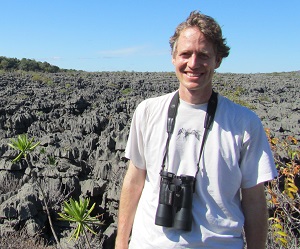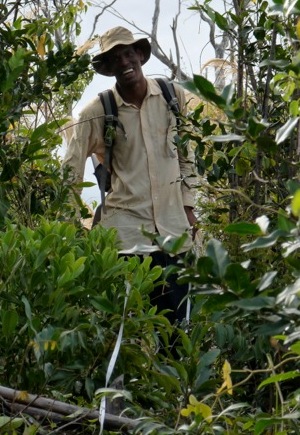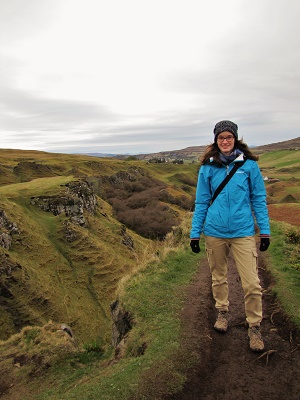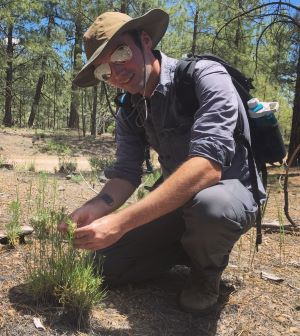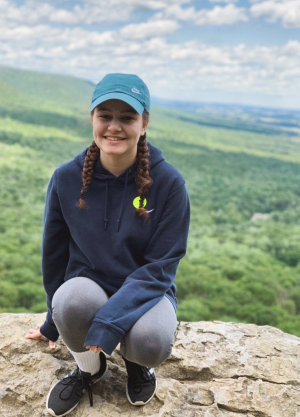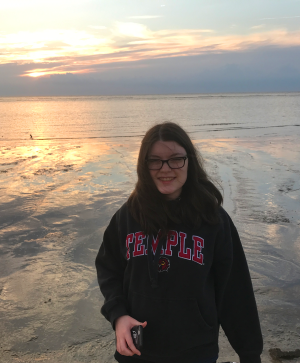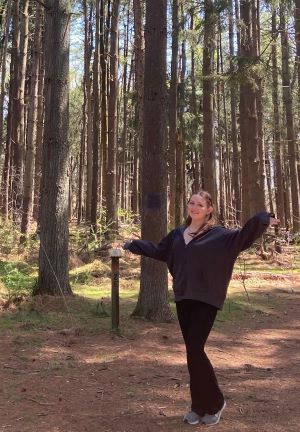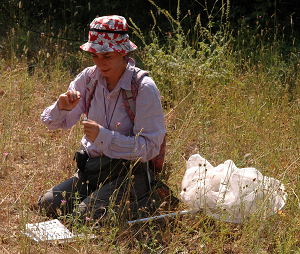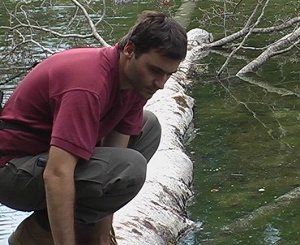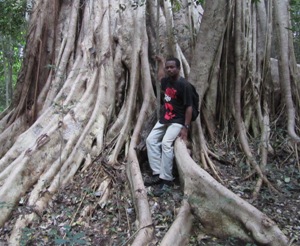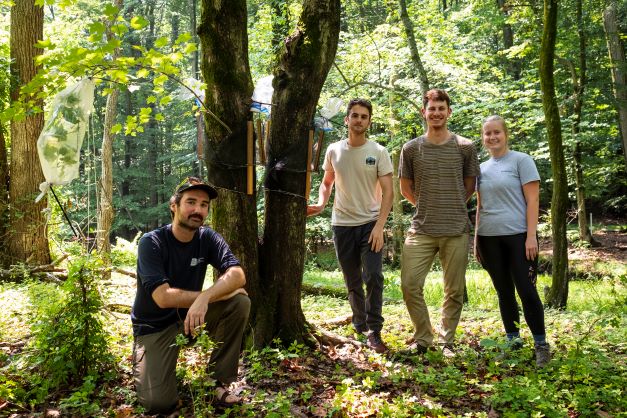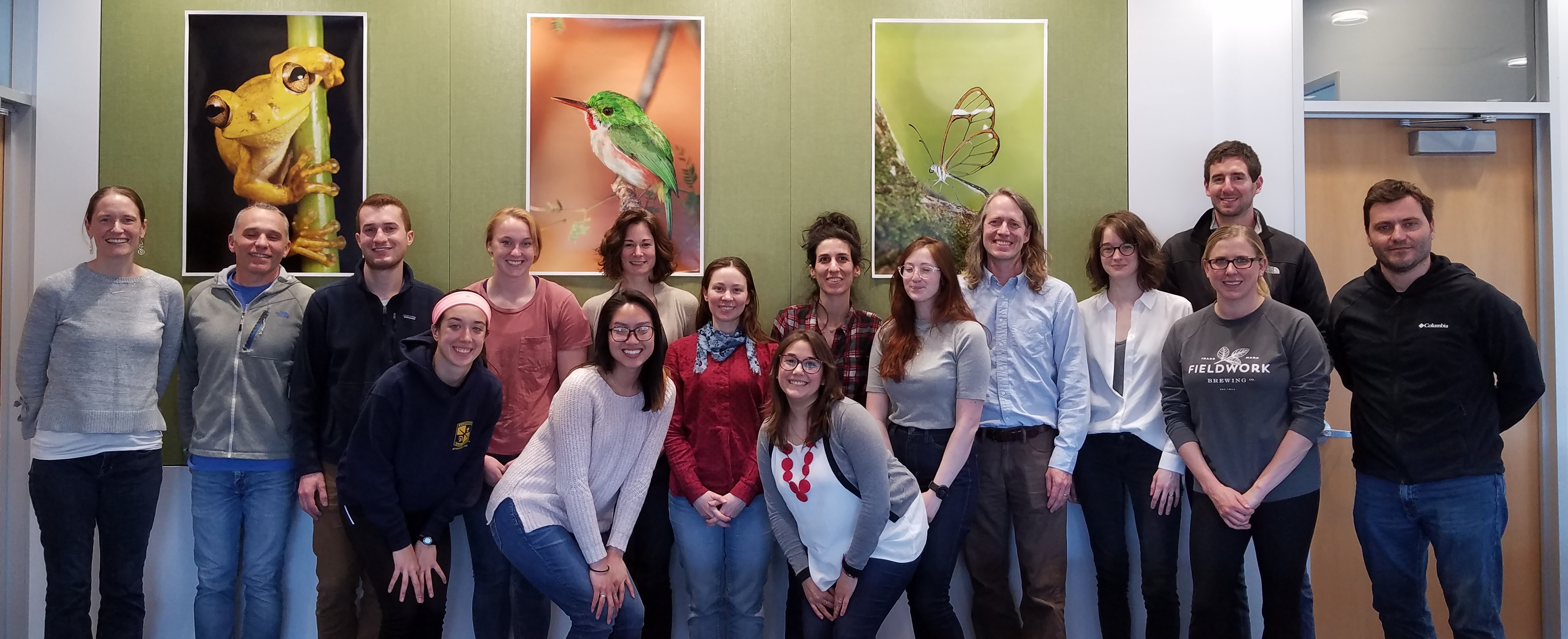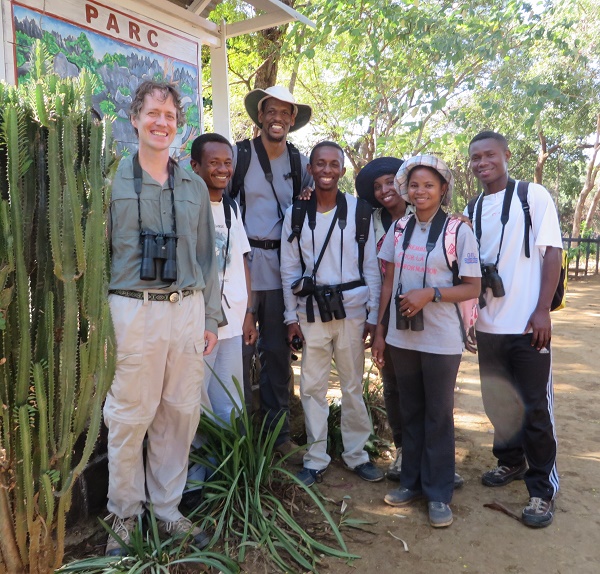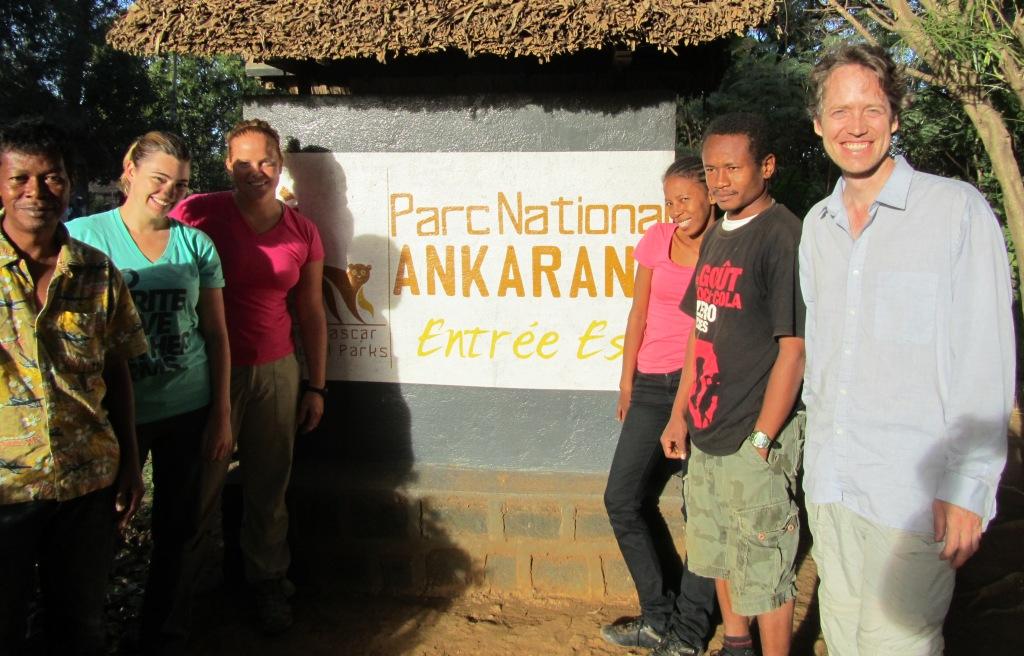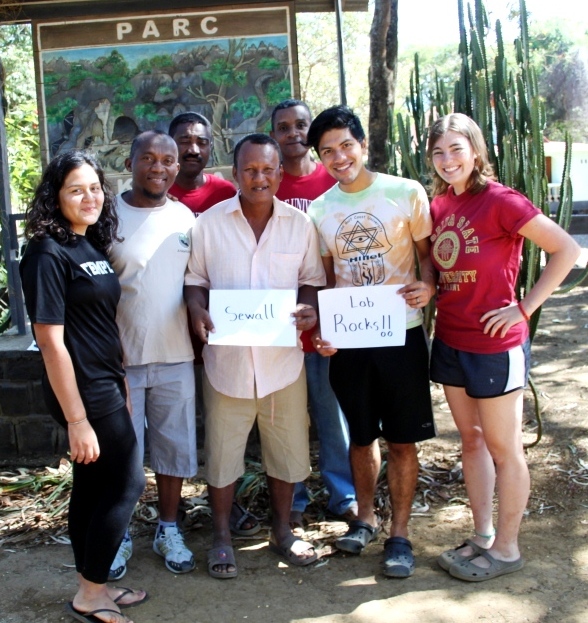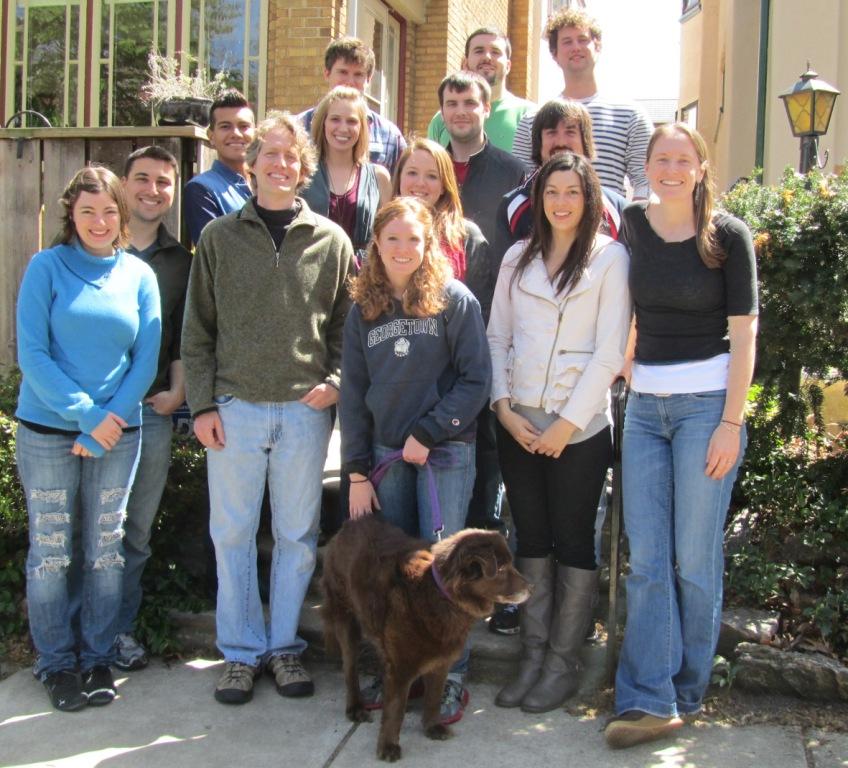Principal Investigator
Dr. Brent Sewall is an Associate Professor in the Department of Biology at Temple University. The goal of his research is to understand and address critical and emerging threats to biodiversity and to develop effective strategies for conservation. Ongoing work focuses on understanding threats to North American hibernating bats caused by the emerging infectious disease known as white-nose syndrome; identifying and addressing critical threats to tropical and temperate biodiversity; and understanding factors underpinning the resilience of ecological communities. His work has focused on cave, forest, and grassland communities in eastern North America and tropical sub-Saharan Africa, including in both intact and human-dominated ecosystems. Dr. Sewall is also providing technical advice on ecology and conservation to the Pennsylvania Mammal Technical Committee and the White-Nose Syndrome Response Team. He has received the American Society of Mammalogists’ William T. Hornaday Award for outstanding contributions to mammal conservation, the U.C. Davis Merton Love Award for best dissertation in ecology and evolution, and Temple University’s William Caldwell Memorial Distinguished Mentoring Award. Previously, Dr. Sewall was a Research Assistant Professor at Temple and a Visiting Assistant Professor of Conservation Biology at the College of William and Mary. Dr. Sewall received a Ph.D. in Ecology from the University of California, Davis, an M.S. in Conservation Biology from the University of Minnesota, and a B.A. from Penn State University.
(click here for recent lab alumni)
Staff Scientist
Dr. Matthew Banks is a Research Assistant Professor in the lab specializing in non-human primate behavioral ecology. Matthew recently received his PhD from Stony Brook University in physical anthropology where he focused his doctoral research on the effects of human activities and naturally-occurring ecological variation on the diurnal primate communities in forest fragments in the extreme north of Madagascar, including patterns of 1) abundance and distribution and 2) species richness at the population-level. He spent over five years conducting research in these isolated habitats and training the first teams of wildlife stewards to staff the newly gazetted 85,000 ha
Andrafiamena-Andavakoera Forest Corridor, a hotspot for the critically endangered Perrier’s sifaka (Propithecus perrieri) and other high priority flora and fauna for conservation, including members of one of Madagascar’s endemic tree families, the Sarcolaenaceae. Since initiating his first research project in the littoral forests of Madagascar in 1997, Matthew has advocated community-based approaches to research and is interested in increasing the network of local research professionals in northern Madagascar where the Sewall Lab is currently studying the mutualistic networks that characterize plant-frugivore interactions at Ankarana National Park. His research interests include investigating the role of herbivores as ecosystem engineers and specifically their role in driving shifts in tree community dynamics in tropical forest ecosystems.
Postdoctoral Researchers
Dr. Marianne Gagnon is broadly interested in understanding how environmental change influences the ecology, behavior, and conservation of wildlife populations. Her postdoctoral research focuses on the ecology and conservation of North American bat species affected by white-nose syndrome, an emerging infectious disease of wildlife. She began her postdoctoral position in the Sewall Lab in early 2022, after having completed her doctorate in the lab. For her dissertation research, she studied the behavioral and ecological aspects of host-pathogen interactions and dynamics in bats affected by white-nose syndrome. Prior to starting her PhD program at Temple University, Marianne obtained her Master’s degree in Wildlife Biology from McGill University where she studied the effects of torpor expression on the behavioral ecology, physiology, and reproductive biology of mammalian hibernators.
Graduate Students
Chris LeClair is a both a Masters student (since 2022) and research assistant (since 2020) with the Sewall Lab. His Masters thesis research focuses on plant community ecology, specifically the recovery of woody plants after a severe forest disturbance from a tornado. He also serves as the lead technician for a project studying Spotted Lanternfly (Lycorma delicatula) and its effect on our native Pennsylvania flora. He is primarily interested in plant ecology and forest pathology. In 2019 he received his undergraduate degree in Horticulture B.S. from Temple University. Throughout his undergraduate studies he concentrated on examining the ecological impacts to our eastern-deciduous forests, which led him into a technician role for the City of Philadelphia’s Emerald Ash Borer management team. Following graduation, Chris spent several field seasons with the National Park Service at Valles Caldera National Preserve, NM, as a plant ecologist technician. During his time there he helped develop and execute the Park’s various vegetation surveying & monitoring projects for fire-treated forest plots, riparian areas, range plant ecology, and invasive plant management. He hopes to continue combining his interests in research and land management into his graduate thesis and future career.
Undergraduate Researchers
Julie Oliveti is a senior at Temple University, majoring in Environmental Science with a concentration in Applied Ecology. She has always had a passionate interest in animals and ecology and has been aspiring toward a career in the field of environmental science since she was in elementary school. She is particularly interested in furthering conservation efforts for species facing extinction due to climate change and its related effects. In the summer of 2022, she joined the Sewall Lab through Temple University’s Undergraduate Research Program to assist in studying the impacts of white-nose syndrome on affected North American bat species and exploring potential methods of treatment and conservation. She is also a member of Temple’s Society of Environmental Engineers and Scientists, and the director of professional relations for Temple University’s chapter of Scientista, a community-building foundation for women in Science, Technology, Engineering, Mathematics, and Medicine (STEMM). After graduation, she hopes to gain field experience abroad before attending graduate school to obtain a Masters degree and continue her involvement in ecology and conservation research.
Laura Walker is a senior at Temple University and graduating in the spring of 2023 with a B.S. in Biology. She has always enjoyed learning about animals and how they interact with the environment, and became interested in research after assisting her ecology professor at Bucks County Community College with a project aimed at determining the stream health of a local tributary. She joined the Sewall Lab in the fall 2022 semester as part of Temple’s Undergraduate Research Program and has helped with image analysis of bat wings for projects related to White-Nose Syndrome. During her time with the lab, she worked on an independent project with the goal of examining the interspecific differences in three bat species affected by the disease. She is excited to continue to be a part of the Sewall Lab by helping to analyze more images in the summer of 2023. As for her future, she is interested in a potential career related to wildlife management where she can meaningfully contribute to ongoing conservation efforts. She loves to be part of teams where everyone is driven to protect endangered species, which is what makes her time with the lab one of the highlights of her academic career.
Rachel Linhart is a freshman at Temple studying Ecology, Evolution, and Biodiversity with a minor in Information Science and Technology. She began developing an interest in ecology as she grew up in the Pine Barrens of southern New Jersey. She further developed a specific interest in wildlife conservation when she began volunteering at a wildlife refuge, where she continued to work for three years. She is now particularly interested in conservation efforts for species and ecosystems affected by climate change. Rachel joined the Sewall Lab in the spring of 2023 through the Science Scholars Program, assisting in research on white-nose syndrome in bats. In the future, she would like to go to graduate school to pursue further research in ecology and wildlife conservation.
Lab Affiliates
Dr. Konstantina Zografou is a conservation ecologist with expertise on the ecology and conservation of terrestrial invertebrate communities, including butterflies and Orthoptera (grasshoppers, crickets, katydids). During her Ph.D. research at the University of Ioannina (Greece), she explored butterflies’ and orthopterans’ species responses to climate change and identified measures needed to conserve species populations within protected areas. She also examined the effects of habitat-specific variables and especially of altitude and canopy cover, used as proxies of possible climate (via space for time substitution) and land use change (agriculture abandonment and forest encroachment). As a postdoctoral researcher, she focuses primarily on statistical analysis of data that have been systematically collected from 1998 on regal fritillary (Speyeria idalia), an extremely rare butterfly species, for which the only viable remaining eastern population occurs at Fort Indiantown Gap National Guard Training Center in central Pennsylvania. Additional data on the whole butterfly species pool is also being used to better interpret ecological and behavioral patterns of the butterfly community, to clarify long-term population trajectories and spatial distributions and to evaluate the effects of wildfire and prescribed fire on grassland butterflies and their host plants.
Dr. George Adamidis was a postdoctoral research fellow specializing in plant ecology. He recently received his Ph.D. from University of the Aegean (Greece) in plant functional ecology where he focused his doctoral research on the functions and factors shaping plant species diversity in harsh (serpentine) environments, and on understanding the mechanisms behind the processes of metal tolerance and hyperaccumulation in plants. His research in functional ecology focuses primarily on analyzing the ecological consequences of variability of plant functioning using functional traits. He has also investigated the effect of harsh abiotic conditions on the structure and diversity of serpentine communities and the decomposition dynamics of mixed-species litters across contrasted environments. A part of his research focuses on the inter-population variation in Ni tolerance, accumulation and translocation patterns in the Ni-hyperaccumulator Alyssum lesbiacum. Finally, he has also focused on the genetic diversity and population structure of this serpentine-endemic species. Currently, George is very interested in: 1) how natural communities across biotic and/or abiotic gradients may respond to climate change, through the mediating role of plant functional traits and 2) disentangling the relative importance of biotic interactions and abiotic factors in defining significant ecosystem processes such as litter decomposition and pollination.
Marcellin Jaoravo is a PhD student interested in the ecology and conservation of birds of Madagascar. He began his doctoral studies in 2013 and is focusing his dissertation research on bird species of conservation concern, and especially the foraging ecology of the Madagascar green pigeon Treron australis, a species endemic to Madagascar whose population is declining. Marcellin is pursuing a degree from the University of Toliara, Madagascar, but is advised by Dr. Sewall on his dissertation research. Marcellin has previously received his matrise and DEA (Master’s degree equivalent) in Animal Biology and Environmental Sciences, with a specialty in Ornithology from the University of Toliara. He has extensive research experience, including field research on the community ecology, foraging and reproductive behavior, and systematics of several species of Malagasy birds and lemurs and conservation work on mangroves. He has also served as an Assistant Instructor of Natural Sciences, manager of the Biochemistry Laboratory, and manager of the Biology Laboratory at the University of Antsiranana, Madagascar.
Research teams
2021 Spotted lanterfly field team
2018 Research team in Sewall and Freestone Labs
2014 Field crew in Madagascar
2013 Field crew in Madagascar
2012 Field crew in Madagascar
2012 Sewall and Freestone Labs and friends

